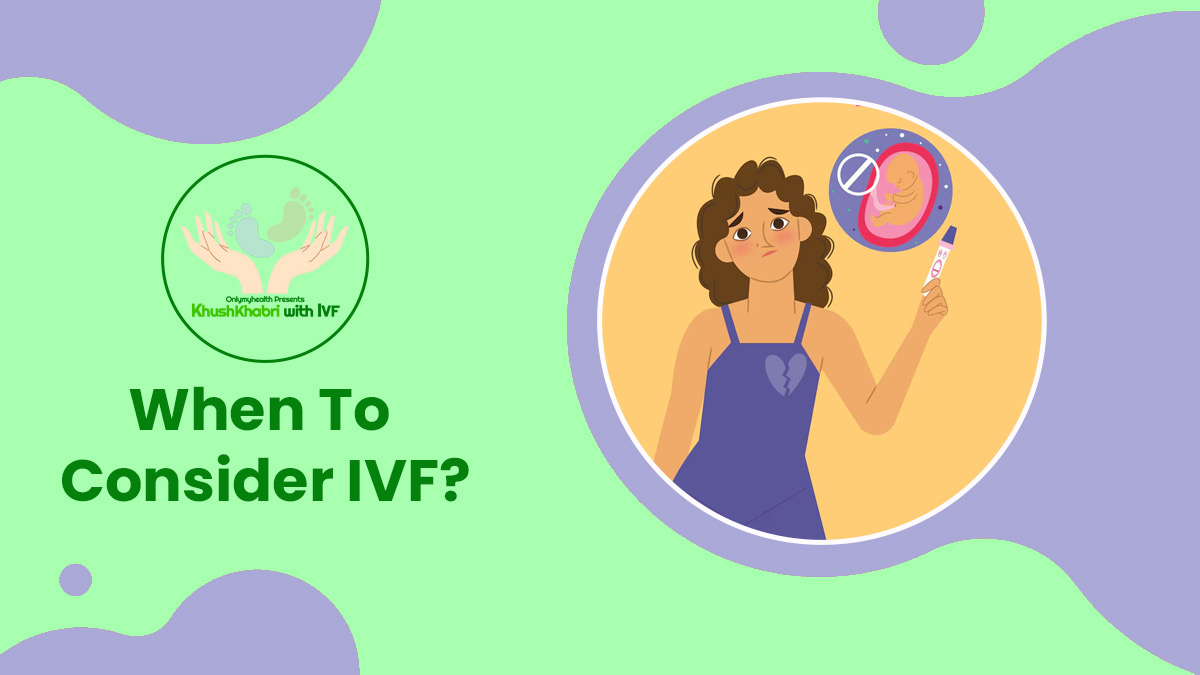
As per a report by E&Y, every year over 2.5 lakh IVF treatments are being done in India which shows the gaining popularity of this assisted reproductive technology. These numbers exhibit the alarming situation of infertility and other factors that obstruct a couple’s natural pregnancy. World IVF Day, 25th July marks it as an important date to raise awareness about in vitro fertilization. Additionally, we have an ongoing campaign 'Khush Khabri With IVF' wherein we cover all aspects of IVF so that more and more people can consider this treatment without any hesitation, doubt or fear. Ad
Table of Content:-
According to Dr Sunita Arora, Sr Consultant and Head, Bloom IVF, Fortis La Femme, Delhi, “It is essential to address some critical messages to the general population and share educational facts to dispel myths about IVF. In our country, the prevalence of infertility is around 18% to 20%. This is significantly higher compared to 20 years ago, when the figure was around 5% to 8%. This increase is partly due to a lack of awareness about infertility in the past.”
What is Infertility?
Infertility is defined as the inability to conceive after one year of trying for women under the age of 35. For women over 35, the timeframe is reduced to six months. If a couple is unable to conceive within these periods, they should seek advice from an infertility specialist.
Also Read: Doctor Answers 11 Most Asked Questions On Infertility and IVF
watch this video to know more about infertility:
IVF is Not the Only Option
One important point for couples to understand is that visiting a fertility specialist does not always mean that IVF is the only treatment option. “There are simpler fertility treatments other than IVF available depending on the individual case. The fertility specialist will take a detailed history to determine whether simple advice or more complex treatment is needed. Both partners will undergo fertility testing, as male and female factors contribute equally to infertility,” shares Dr Arora.
Fertility Testing & Treatment
For men, a simple semen analysis provides valuable information. For women, tests are conducted to examine the reproductive organs, including the uterus, ovaries, fallopian tubes, and any issues in the vaginal tract.
Many fertility cases can be resolved with simpler treatments like IUI (Intrauterine Insemination), where the male partner's processed semen sample is placed in the uterus at the time of ovulation. However, the success rate for IUI is around 15% to 20%.
Also Read: Fertility Testing, A Prerequisite For Couples Struggling With Conception
What is IVF?
IVF or in vitro fertilization, involves fertilising eggs and sperm outside the body in a laboratory. The process includes 10 to 11 days of hormonal injections for the female partner, starting from day two of the cycle. Ultrasounds monitor egg growth, and the eggs are retrieved under anaesthesia. These eggs are then examined under a microscope, and the good eggs are fertilised with the male partner's sperm.
Here is a video to help you understand more about IVF:
When to Opt for IVF?
According to Dr Arora, IVF is recommended in several scenarios:
- Complicated Cases: When simpler treatments have failed.
- Blocked Fallopian Tubes: Natural pregnancy and IUI are not possible.
- Endometriosis: Moderate to severe endometriosis reduces the chances of conceiving through simpler treatments.
- Male Factor Infertility: Low sperm count or azoospermia (absence of sperm) may require IVF.
- Third-Party Reproduction: When donor eggs or surrogacy are needed.
- For fertility preservation: Which can be either for delaying child bearing or in cases of cancers (oncofertility) where patients have to undergo chemotherapy. So before going for chemotherapy fertility preservation can be done
Also Read: Lifestyle Changes To Make If You Are Preparing for IVF
Addressing Myths About IVF
There are several myths about IVF that need to be addressed:
- Weight Gain: Weight gain is often due to water retention caused by hormones, not actual weight gain.
- Use of Donor Gametes: It's your own eggs and sperm which are used in IVF. If third-party reproduction is needed and medically indicated it is discussed with the couple, and all legalities are completed and if at all it happens with the consent of the couple. Nowadays because of new ART law permission for surrogacy is taken through court and even for donor eggs a notarised document is needed.
- Chances of multiple pregnancy:. If only one good blastocyst is implanted, the chances of having twins or multiple pregnancies is negligible.
- Bed Rest: It is not necessary to stay in bed for nine months after an IVF pregnancy. Routine activities can be continued with some reduction in physical activities.
Watch this video to know more:
Success Rates
“IVF does not guarantee a 100% success rate. Success depends on several factors, including age. For women under 35, the success rate in the first cycle is around 60% to 65%. For women approaching 40, the success rate drops to around 10%-15 %,” highlights Dr Arora.
Conclusion
On World IVF Day, it is essential to recognize the importance of understanding one’s fertility potential. Consulting a fertility specialist and considering fertility preservation options, such as egg or embryo freezing, can be crucial for those with lower fertility potential. IVF represents a significant medical advancement and should be considered a valuable option for couples facing fertility challenges.
Also watch this video
Read Next
IVF Success Rates Drop 38% Due To Air Pollution, Study Reveals: Expert Explains How This Happens
How we keep this article up to date:
We work with experts and keep a close eye on the latest in health and wellness. Whenever there is a new research or helpful information, we update our articles with accurate and useful advice.
Current Version
